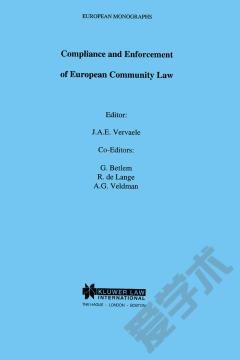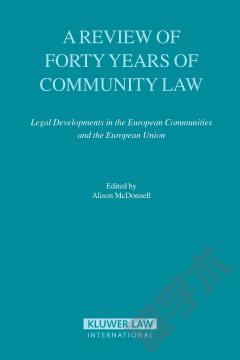The Law of the European Union and the European Communities
The Law of the European Union is a complete reference work on all aspects of the law of the European Union, including the institutional framework, the Internal Market, Economic and Monetary Union and external policy and action. Completely revised and updated, with many newly written chapters, this fifth edition of the most thorough resource in its field provides the most comprehensive and systematic account available of the law of the European Union (EU). Written by a new team of experts in their respective areas of European law, its coverage incorporates and embraces many current, controversial, and emerging issues and provides detailed attention to historical development and legislative history of EU law.Topics that are constantly debated in European legal analysis and practice are touched on in ways that are both fundamental and enlightening, including the following:.powers and functions of the EU law institutions and relationship among them;.the principles of equality, loyalty, subsidiarity, and proportionality;.free movement of persons, goods, services, and capital;.mechanisms of constitutional change – treaty revisions, accession treaties, withdrawal agreements;.budgetary principles and procedures;.State aid rules;.effect of Union law in national legal systems;.coexistence of EU, European Convention of Human Rights (ECHR), and national fundamental rights law;.migration and asylum law;.liability of Member States for damage suffered by individuals;.competition law – cartels, abuse of dominant position, merger control;.social policy, equal pay, and equal treatment;.environmental policy, consumer protection, public health, cultural policy, education, and tourism;.nature of EU citizenship, its acquisition, and loss; and.law and policy of the EU’s external relations.The fifth edition embraces many new, ongoing, and emerging European legal issues. As in the previous editions, the presentation is notable for its attention to how the law relates to economic and political realities and how the various policy areas interact with each other and with the institutional framework.The many practitioners and scholars who have relied on the predecessors of this definitive work for years will welcome this extensively revised and updated edition. Those coming to the field for the first time will instantly recognize that they are in the presence of a masterwork that can always be turned to with profit and that helps in understanding the rationale underlying any EU law provision or principle.
{{comment.content}}








 京公网安备 11010802027623号
京公网安备 11010802027623号